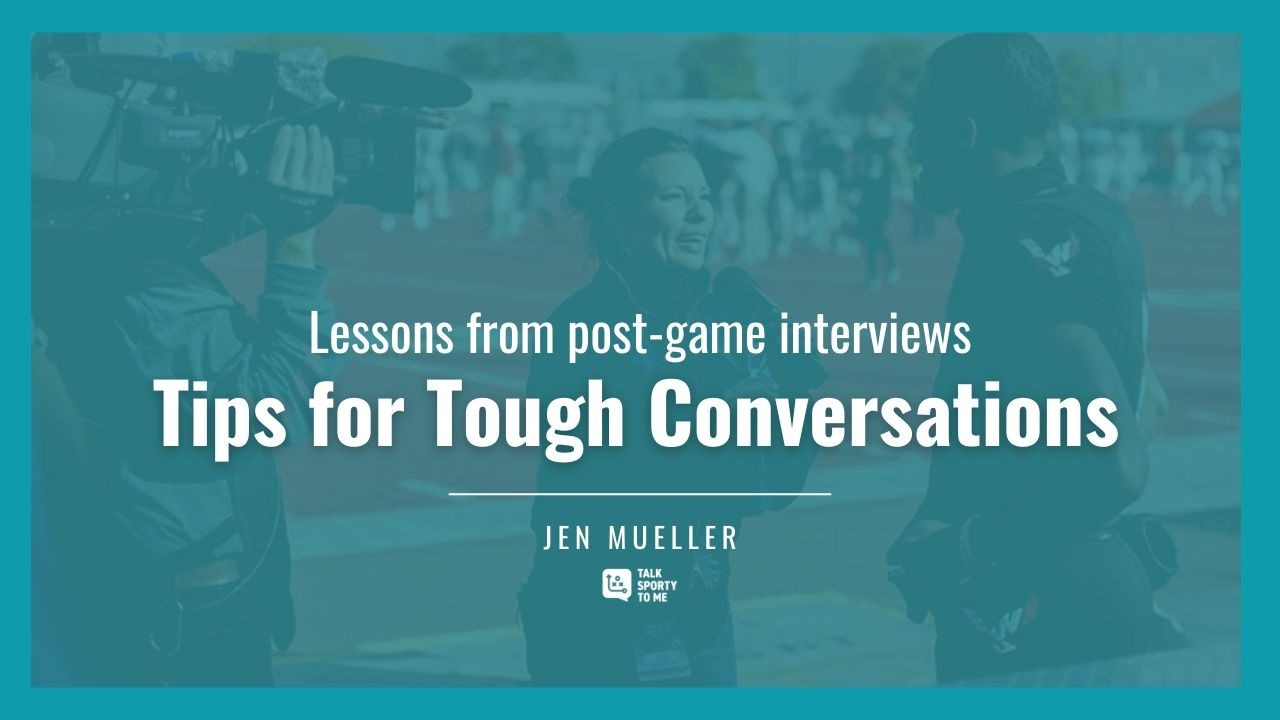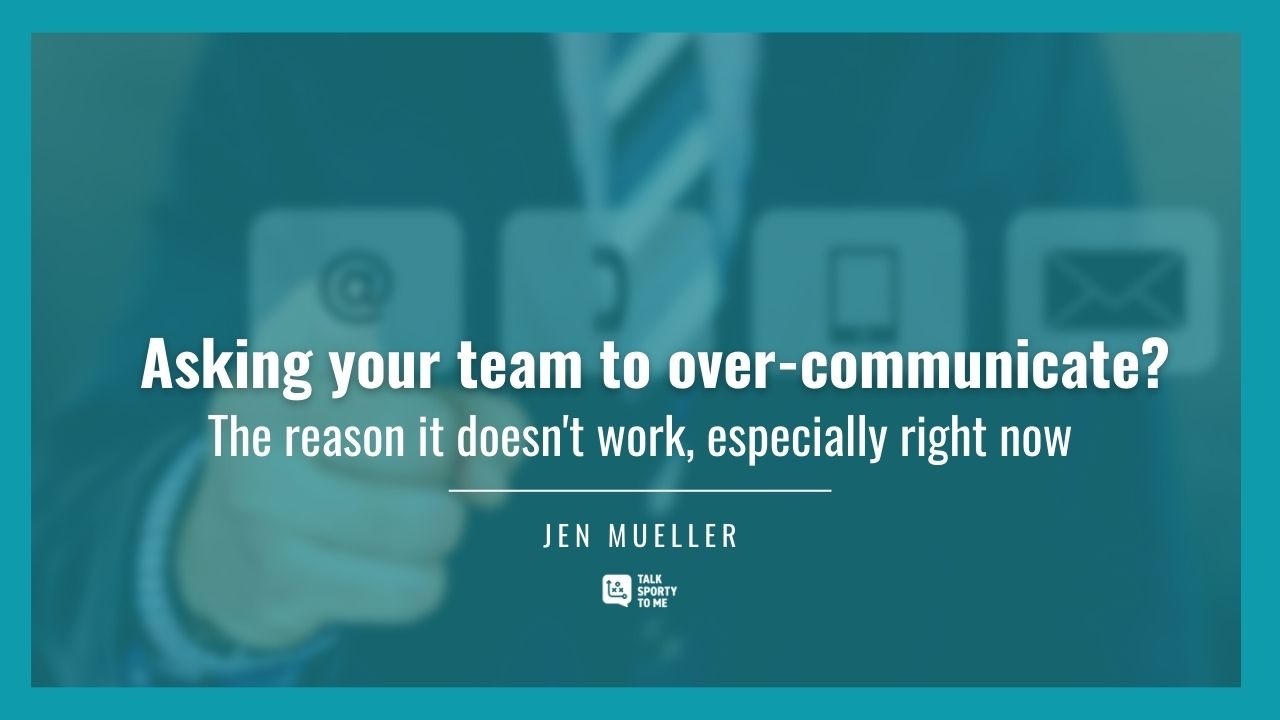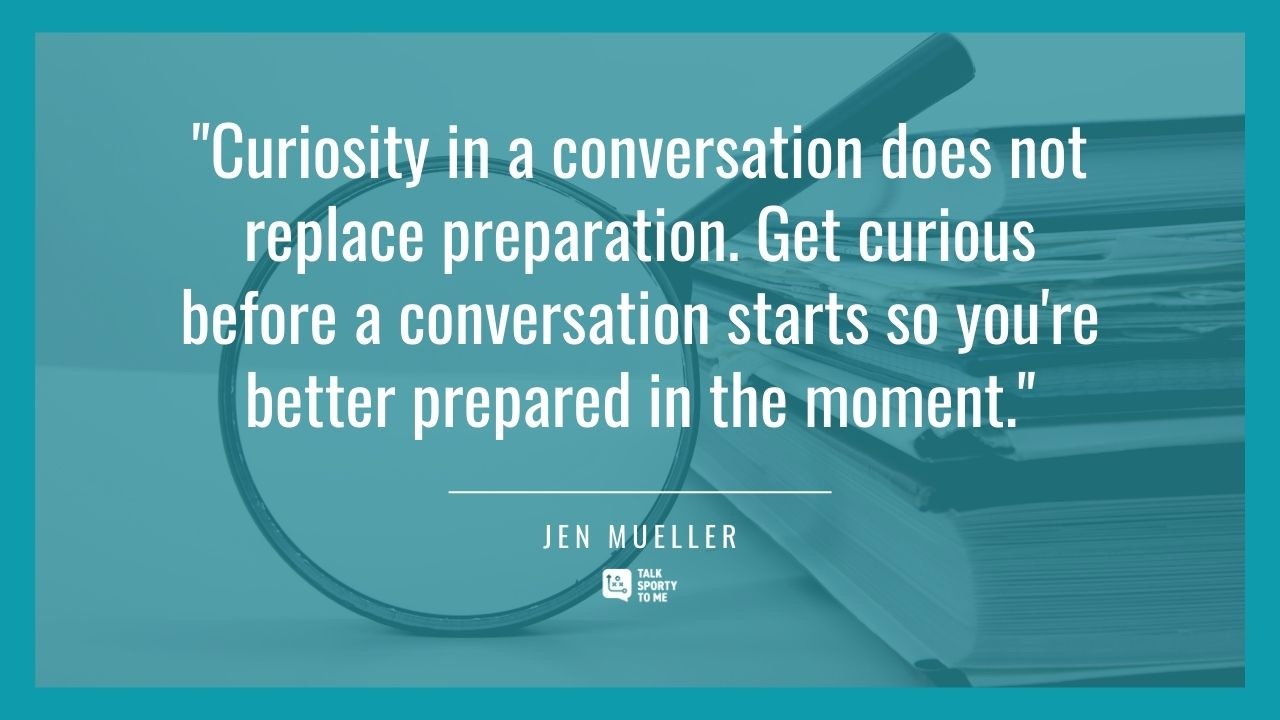You can encounter any number of tough conversations throughout the day in your professional and personal life. We all approach those interactions diff...
I talk to losers.
It is literally part of my job.
When people find out I work in sports broadcasting they automatically jump to the cool parts of th...
It sounds like a good idea, but telling your team to over-communicate with you or each other isn't helping.
Asking your team to over-communicate m...
As we think about connecting in real life again, resuming networking habits, or maybe refining that podcast you started in the last year. Remember thi...
"How are you?"
In "normal" times it's the appropriate thing to say when starting a conversation and part of the script we follow by default.
These...
More isn’t better. Longer conversations don’t lead to better communication. Additional information doesn’t lead to better understanding.
Unnecessary ...
When I look into the future for 2020 I see sports. Lots of sports.
Although, I suppose that’s true for every year and every decade. Which is why ever...












